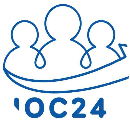Read the following passage and mark the letter A, B, C, or D to indicate the correct answer to each of the questions.
The family in Britain is changing. The once typical British family headed by two parents has undergone substantial changes during the twentieth century. In particular there has been a rise in the number of single-person households, which increased from 18 to 29 per cent of all households between 1971 and 2002. By the year 2020, it is estimated that there will be more single people than married people. Fifty years ago, this would have been socially unacceptable in Britain.
In the past, people got married and stayed married. Divorce was very difficult, expensive and took a long time. Today, people's views on marriage are changing. Many couples, mostly in their twenties or thirties, live together (cohabit) without getting married. Only about 60% of these couples will eventually get married.
In the past, people married before they had children, but now about 40% of children in Britain are born to unmarried cohabiting) parents. In 2000, around a quarter of unmarried people between the ages of 16 and 59 were cohabiting in Great Britain. Cohabiting couples are also starting families without first being married. Before 1960 this was very unusual, but in 2001 around 23 per cent of births in the UK were to cohabiting couples.
People are generally getting married at a later age now and many women do not want to have children immediately. They prefer to concentrate on their jobs and put off having a baby until late thirties.
The number of single-parent families is increasing. This is mainly due to more marriages ending in divorce, but some women are also choosing to have children as lone parents without being married.
Question. Which of the following is NOT true according to the passage?
In the past, British people had to pay a lot if they wanted to get divorced.Half of the children in Britain now are born to unmarried couples.Women in Britain now do not want to have children right after marriage.There are more and more single-parent families in Britain these days.Hướng dẫn giải:Dựa vào các câu:
- In particular there has been a rise in the number of single-person households, which increased from 18 to 29 per cent of all households between 1971 and 2002.
- Divorce was very difficult, expensive and took a long time. In the past, people married before they had children, but now about 40% of children in Britain are born to unmarried (cohabiting) parents.
- People are generally getting married at a later age now and many women do not want to have children immediately.
Dịch:
- Đặc biệt đã có sự gia tăng số hộ gia đình độc thân, tăng từ 18% lên 29% trong tổng số hộ gia đình trong giai đoạn 1971-2002.
- Việc ly hôn rất khó khăn, tốn kém và mất nhiều thời gian. Trước đây, mọi người kết hôn trước khi có con, nhưng hiện nay khoảng 40% trẻ em ở Anh được sinh ra từ các bậc cha mẹ chưa kết hôn (sống thử).
- Mọi người thường kết hôn ở độ tuổi muộn hơn và nhiều phụ nữ không muốn có con ngay lập tức.

